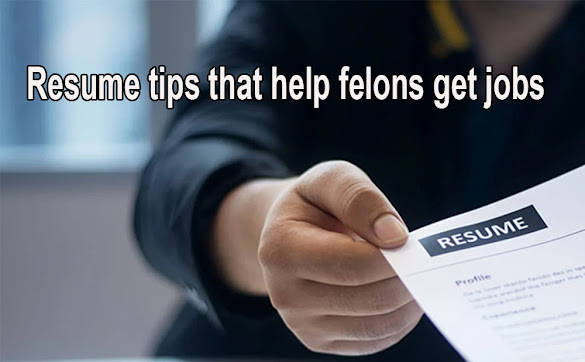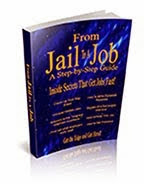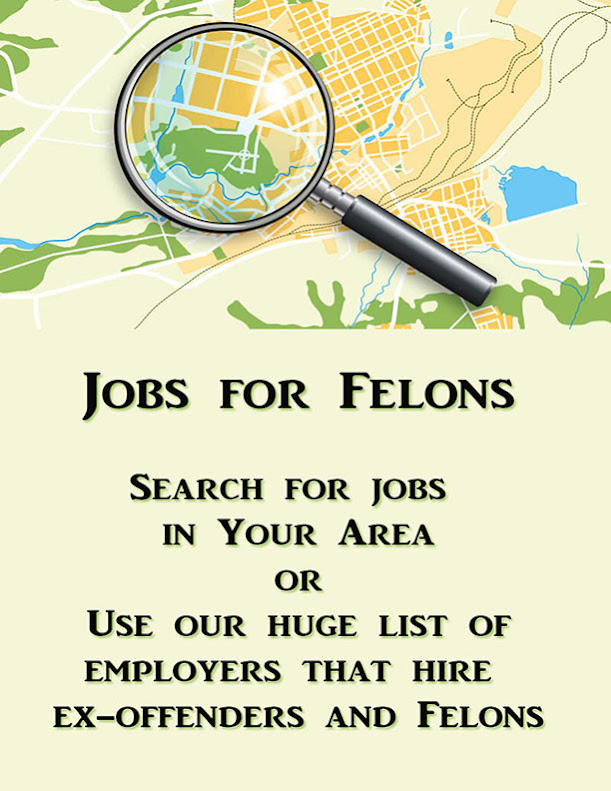Ex-offenders, Felons, Jobs and Drug Tests
 I have been helping Ex-offenders and Felons get jobs for many years and I have helped thousands get jobs. One of the biggest barriers that some ex-offenders place in front of themselves is not being able to pass drug tests.
I have been helping Ex-offenders and Felons get jobs for many years and I have helped thousands get jobs. One of the biggest barriers that some ex-offenders place in front of themselves is not being able to pass drug tests.Drug testing has become an important safety issue for many employers. Many companies now have some form of drug testing for prospective employees. Drug testing serves to lower the instance and issues associated with drug abuse in the workplace, including lateness, absenteeism, turnover rate, crime, violence, theft and other side effects. Too many of my students believe that they can use illegal drugs and still pass drug tests. With my experience in human resources, management and employment training, I will attempt to expose the myths and give the facts on drug tests.
The typical methods that employers use for detecting illegal drugs are:
Urine Testing:
Urine testing is the most common of the screenings used for illegal substances. Drug users would sometimes use outlandish methods like using fake urine that is sold in some places or using a sample taken from someone else in place of their own. To avoid the applicant using urine not his own, I would always have a sample given in the presence of a staff member. Others believe that drinking large amounts of water will dilute the sample and the drugs will not be detected. Water passes through the body much too quickly to be effective. I have even heard of using ridiculous home remedies to beat urine tests. These remedies include aspirin, eye drops, ammonia, vinegar, bleach and even commercial drain cleaners! There are commercial products that claim to mask the traces of drugs making them undetectable. many of these products use nitrates which will mask the drug to an extent, but laboratories have gotten more savvy and also test for the nitrate compounds that these products contain. In many cases the presence of nitrates will result in a failed test.
A single use of marijuana can be detected up to seven days in the urine, while extended use can be detected up to 100 days
Amphetimines, cocaine, heroin, opiates and PCP can be detected accurately up to seven days after use.
Ex-offenders, Felons, Jobs and Drug Tests
Saliva Testing
Saliva tests are the least popular because it can only detect toxins used three or four days prior. Saliva tests can detect fresh elements of alcohol and drugs in the mouth.
Hair follicle Testing
My experience is that hair follicle testing is the most effective method of narcotics screening. A hair test is an examination that uses a small sample of hair to identify specific drugs used by the person being tested. Typically, the sample is taken from the head, but can be collected from several other body locations such as arms, legs and back and may be combined to obtain the required amount of hair. Drugs can be detected with high accuracy for a six month period after use. Chemical compounds of drugs are circulated in the blood stream and become part of the cells of the body including the hair root where they are easily detected.
There are hundreds of detoxifying products on the market that claim that with their use, drugs will not be able to be detected. There products that claim that they can wash toxins out of the hair. Most of these are absolute scams. The rest have a very low success rate. An experienced screener would pull the hair out intact, exposing the root where the compounds collect.
A one time use of marijuana will likely not show up in the hair while extended use can be detected for three to five months after use depending on the test used.
Amphetamines, cocaine, heroin, opiates and PCP can be detected accurately up to five months after use.
Certain non-prescription medications can interfere with accurate results. These common medications include ibuprofen and ephedrine-based products. Most drug testing companies will ask the applicant in advance if they have taken any prescription or non-prescription medication prior to the screen.
In most cases if any drugs are detected, the applicant will have the opportunity to provide a doctor's prescription or choose to be retested.
Jobs for felons and "ex-offenders" are hard enough to get, so why blow an opportunity to get hired by using drugs?
The facts about employee drug testing for ex-offenders and felons looking for jobs
Jobs for Felons: How Drug Test Cheats get Caught
Ex-offenders, Felons, Jobs and Drug Tests















